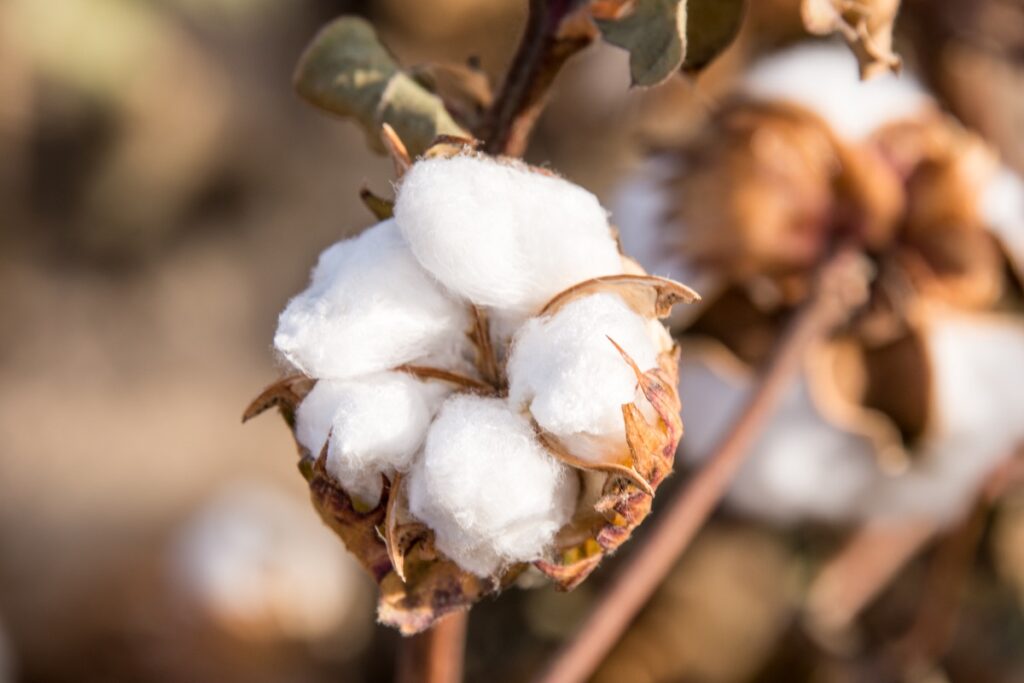Amsterdam, Hong Kong, Oakland (CA) — October 24, 2024: Cascale, formerly the Sustainable Apparel Coalition, has unveiled a new cotton LCA methodology for the Higg Materials Sustainability Index (Higg MSI), offering unprecedented accuracy and consistency in assessing the environmental impacts of cotton fiber. This new methodology provides businesses with reliable data to make informed sourcing and sustainability decisions. Data modeled with this methodology will be released on this and future updates to the Higg MSI, exclusively available on the sustainability data insights platform Worldly, reflecting significant industry-wide collaboration.
The Higg MSI is a cradle-to-gate material assessment tool that calculates environmental impacts from the extraction or production of raw materials, through manufacturing and finishing to the point where the material, trim/component, or packaging is ready to be assembled into a final product. For the past three years, experts and stakeholders convened by Cascale as part of the Higg MSI Methodology Cotton Expert Team collaborated on a cotton-specific methodology and model, providing an industry-aligned method for assessing the environmental impact of the fiber, following LCA principles. This updated cotton methodology not only strengthens sourcing decisions within the cotton sector but also sets a precedent for improving data transparency across other fibers and materials in the Higg MSI.
Standardized data collection and consistent modeling ensure that reliable cotton impact results are available through the Higg MSI. Transparent and usable environmental impact data helps drive further sourcing of preferred cotton through producer programs. In addition, the cotton LCA methodology is designed to accurately demonstrate the impacts of field practice improvements over time, providing Higg MSI users with more steering information and enabling more accurate impact monitoring. Cascale will continue to integrate more accurate and continuously evolving cotton LCA data into future updates of the Higg MSI tool.
“This update is a testament to the power of industry-wide collaboration,” said Joël Mertens, Director of Higg Product Tools at Cascale. “By bringing together diverse stakeholders who work directly with cotton growers we’ve created a methodology that not only improves cotton LCA data, but advances transparency through continuous updates and evolution. This in turn allows for better partnerships and decision-making across supply chains to drive real sustainability outcomes.”
Participants in the Higg MSI Methodology Cotton Expert Team included 13 member organizations representing global cotton programs and industry stakeholders.
“Measuring the environmental impact of sustainable cotton production in a meaningful and consistent way is important to enable textile manufacturers, and ultimately consumers, make sustainable choices”, said Prakash Philip, Global Director, Strategy and Impact at CottonConnect. “That’s why, as part of Cascale’s MSI Methodology Cotton Expert Team, CottonConnect contributed to the development of a Higg MSI cotton-specific LCA methodology to enable a standardized, industry-wide method.”
“This Cascale initiative shows the desire of our peers around the world to ensure if an LCA method is used – such as for hotspot analysis, risk assessment, and demonstrating impact – it uses best available data, and complements the Australian cotton industry’s long record of collaboration and data transparency”, said Cotton Research and Development Corporation (CRDC) Executive Director Allan Williams. “The Australian cotton industry expects this new Cascale Cotton Methodology will give textile and apparel customers greater confidence in Australian cotton and potentially help them identify areas to work with the Australian cotton industry to further reduce their impacts.”
“This extensive collaboration led to a method enabling more accurate and frequent measurement of cotton’s sustainability. This is crucial as we track our improvements over time and meet the growing demand for data and transparency”, said Jesse Daystar, Ph.D., Chief Sustainability Officer at Cotton Incorporated. “We hope initiatives like this inspire efforts to improve the data quality across fiber types, such as polyester, as many existing data sources are becoming outdated and lack geographic representation.”
“There is significant demand for LCA data, but we’ve lacked the standardized approach to fully harness its potential and clarify its correct use”, said Miguel Gomez-Escolar Viejo, Head of MEL at Better Cotton. “This new cotton LCA methodology could be truly transformative: avoiding errors from the past, aligning the industry’s evaluation methods and fostering more meaningful collaboration and future advancements.”
“The Trust Protocol supports this updated cotton LCA methodology and appreciates the opportunity to have been part of the working group from the beginning,” said Daren Abney, Executive Director of the U.S. Cotton Trust Protocol. “The inclusion of more data sources will be a welcome step towards greater accuracy and transparency in understanding the environmental impacts of cotton production. We look forward to the incorporation of the Trust Protocol’s data in the next edition of the Higg MSI, further strengthening the tool’s ability to drive positive change within the industry.”
By harmonizing methodologies and aligning industry practices, Cascale’s Higg MSI update ensures that data related to cotton’s environmental impact is both accurate and transparent, providing a critical step forward to ensure stakeholders across the value chain are equipped to make informed decisions based on credible, standardized information. Cascale remains at the forefront of advancing sustainability by continuously evolving the Higg Index, ensuring that our members have the most accurate, timely, and actionable data to drive progress across the entire value chain. The first LCIA results from a participating program are now available in the Higg MSI. Data from several other programs is currently under review and are on track to be approved and added to the Higg MSI before the end of 2024.
About Cascale
Cascale is the global nonprofit alliance empowering collaboration to drive equitable and restorative business practices in the consumer goods industry. Formerly known as the Sustainable Apparel Coalition, Cascale owns and develops the Higg Index, which is exclusively available on Worldly, the leading sustainability data insights platform. Cascale unites over 300 retailers, brands, manufacturers, governments, academics, and NGO/nonprofit affiliates around the globe through one singular vision: To catalyze impact at scale and give back more than we take to the planet and its people.
LinkedIn | X | Instagram | Facebook | YouTube




